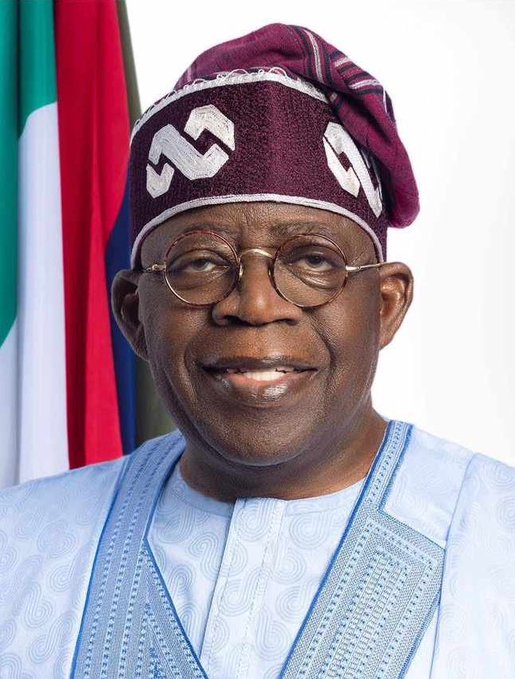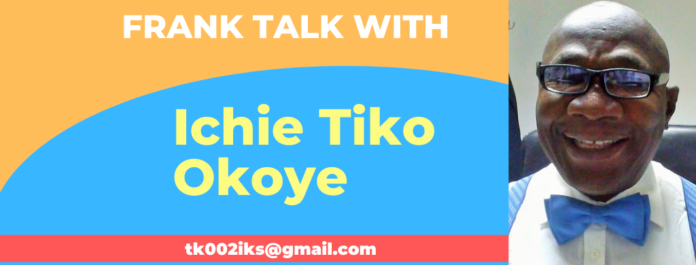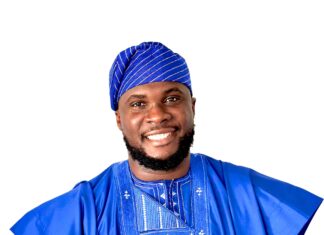Sixth, the health workers under the aegis of the Joint Health Sector Unions (JOHESU) that have been observing a 12-day national strike prior to the inauguration of Tinubu, immediately called off the strike shortly after honouring the latter’s invite to a parley, giving the Presidency an extended grace period.
It’s an open secret that President Bola Tinubu was handed a nation that clearly qualified to be called a basket case in several respects. Fortunately for Nigeria and Nigerians, all indication so far is that – without prejudice to ongoing lawsuits – Tinubu is more than adequately prepared for the job he has been elected to perform.
Truth’s that since Tinubu officially took over the reins of power on May 29, he has totally awed and shocked a lot of people – including even some of his most ardent critics and traducers – by the frenetic pace of his actions. Going by his bunched-up achievements so far, one would be forgiven for thinking that he has been in office for as long as the magical 100 days! Let me reel off a few just to remind ourselves.
First, he deftly nipped the nationwide strike planned by the presidents of the Nigeria Labour Council (NLC) and Trade Union Congress (TUC) in the bud using a three-prong approach: taking his case directly to the Nigerian people, intensive negotiations and judicial intervention. The widely-encompassing strike would’ve further severely devastated the already-ailing economy.
Second, he heralded more disciplined government mode of operation by magisterially intervening with an immediate ‘cease and desist’ order to one of the parties involved in the reported squabble between the Department of State Services (DSS) and the Economic and Financial Crimes Commission (EFCC) over an office building in Lagos.
Third, he boldly proclaimed the removal of fuel subsidy. The feat isn’t in announcing the policy, as two of his predecessors had equally done so in the past only to quickly reverse themselves following disastrous fallouts. That Tinubu has so far superintended a fairly stable polity is a mark of his superior managerial competence.
Petrol price increases in neighbouring West African countries and the reported protests against President Tinubu by ‘okada’ riders in Cameroon prove beyond any shadow of doubt that these countries and the parasitic fuel cabal in Nigeria are benefiting immensely from the fuel subsidy scam and that its removal was long overdue. What now remains to be done is to devise how to package palliatives that would reach the suffering masses who need them the most, rather than being hijacked in transit by political mandarins.
Fourth, he announced an immediate opening of the nation’s international borders – something that greatly delighted operators of commercial and industrial ventures embittered by the alleged singling out of the Seme border for closure by the immediate-past administration.
Fifth, he invited representatives of major oil marketers to a meeting where he explained his determination to see through the complete decentralisation of the downstream petroleum sector. He must’ve so charmed them that the usually restive and truculent oil marketers immediately announced their intention to donate 100 50-seater CRT mass transit buses – with a cumulative cost of N10 billion – to cushion the effect of the subsidy removal within the next 30 days.

Sixth, the health workers under the aegis of the Joint Health Sector Unions (JOHESU) that have been observing a 12-day national strike prior to the inauguration of Tinubu, immediately called off the strike shortly after honouring the latter’s invite to a parley, giving the Presidency an extended grace period.
Seventh, Tinubu signed the 2023 Electricity Act into law, removing the generation, transmission and distribution of electricity from the exclusive list (FG only) to the concurrent list (FG, State, LGA, Companies and Individuals). This is expected to have a profound effect on available power supply.
Eighth, Tinubu assented to the “Constitution of the Federal Republic of Nigeria, 1999 (Fifth Alteration) (No.37), 2023,” which, among other things, effectively brought the retirement age and pension rights of judicial officers into uniformity, strengthening the judiciary and empowering judicial officers to more efficiently execute their responsibilities.
Ninth, he suspended the longest-serving governor of the Central Bank of Nigeria, Godwin Emefiele, who many Nigerians hold responsible for the rot that stifled effective monetary policy formulation and implementation. He not only instituted a multiple exchange rate policy that fostered round-tripping and diabolically implemented a mismanaged Naira redesign policy that traumatised so many Nigerians and small business enterprises, but he also took the unprecedented step of participating in a political party presidential primary while still serving as governor of the apex bank!
Tenth, Tinubu signed the Student Education Loan Act, granting indigent students in tertiary institutions unfettered access to interest-free loans coupled with a generous moratorium. Obviously aimed at partially appeasing the youths, this would make it very easy for students in this category to complete their education without any interruptions. One can only hope that as the economy improves – as is now being projected – all three tiers of government would reintroduce scholarship and bursary schemes as was the case in the First and Second Republics.
Not a few have started hailing President Tinubu as ‘master strategist,’ ‘benevolent genius,’ ‘modern-day Niccolo Machiavelli,’ ‘a clone of Winston Churchill’ and ‘Henry Kissinger reincarnate.’ While some of these names might seem hyperbolic, there’s no gainsaying that Tinubu possesses a magic wand that has seen him easily saunter through very daunting scenarios that would’ve ‘neutralised’ many others.
And nowhere is this factor more evident than in the outcomes of the elections for the top leadership positions of the 10th National Assembly, when those viscerally opposed to the man and his politics looked forward with great relish to Tinubu yet again getting his comeuppance. Recall that in 2015, Buhari’s bizarre “I belong to nobody, I belong to everybody” speech at his inauguration provided the loophole for Bukola Saraki and Yakubu Dogara to supplant the official APC nominees and reach an accord with the PDP to form mixed cabinets, contrary to convention, practice and norm.
The contest in the Senate pitched Godswill Akpabio, the preferred candidate of President Tinubu and the National Working Committee of the APC, against Abdulaziz Yari, a former governor of Zamfara, who defied the directive of the party’s leadership to yield the right of way to Akpabio, obviously buoyed by a determination to replicate the Saraki/Dogara palace coup.
The contests in the House of Representatives were expected to be even fiercer.
First, ‘rebels’ defying the ruling party’s directives are no pushovers. Ahmed Idris Wase, the outgoing Deputy Speaker of the 9th House of Representatives, had stepped down for Femi Gbajabiamila in a gentleman’s ‘If I fall down for you, you’ll later fall down for me too’ agreement in 2019. He obviously became incandescently angry that his own ‘emi lo kan’ wasn’t being reciprocated. The other candidate, Aminu Sani Jaji, was a former chairman of the House Committee on Intelligence and Internal Security.
Second, the number of House Members – 360 – as compared with the Senate’s 109, makes it too unwieldy and costly to engage in the traditional horse trading and vote-buying.
Thirdly – and potentially the most critical – the 10th House is a hung chamber with the number of APC members being less than the combined number of the opposition. It would be very easy – assuming they can reach a consensus – for the opposition parties to rain on the ruling party’s parade by conjuring up a Speaker and his deputy entirely of their own making!
In the end, both sets of elections became an anti-climax of sorts. Those who have been screaming about the ‘rubber stamp’ nature of the 9th NASS should better fortify themselves against more lethal apoplectic palpitations given the outcomes.
Akpabio easily defeated Yari. But the real surprises were in the House where maximum tension was being expected. It wasn’t to be, as Tajudeen Abbas, one of the longest serving members from Zaria federal constituency in Kaduna, harvested 353??? out of 360 votes to shell-shock Wase and Jaji. The contest for the Deputy Speaker was even more dramatic. Despite all the huffing and puffing leading up to the election, Benjamin Kalu from Bende federal constituency in Abia and the preferred candidate was returned unopposed!
What magic was involved? None, except eking out results the old-fashioned way. Unlike Buhari before him, President Tinubu went underground from where he was effectively pulling the levers of power. The party nominees equally didn’t take matters for granted as they engaged in tireless, round-the-clock horse trading nationwide. The fact that the opposition parties couldn’t even use their ‘majority’ to effect any upsets in the House elections only goes to further demonstrate the sagacity and mastery of the political chess game by President Tinubu and his men.
As I listened to the very motivating and highly inspirational speech President Tinubu delivered on this year’s Democracy Day, my skin developed goosebumps and I became fully persuaded that Nigeria is at a good vantage point to rise again. Just as legendary English poet and historian John Milton aptly noted, it’s equally for me a straight case of “the childhood showing the man as the morning shows the day.”













